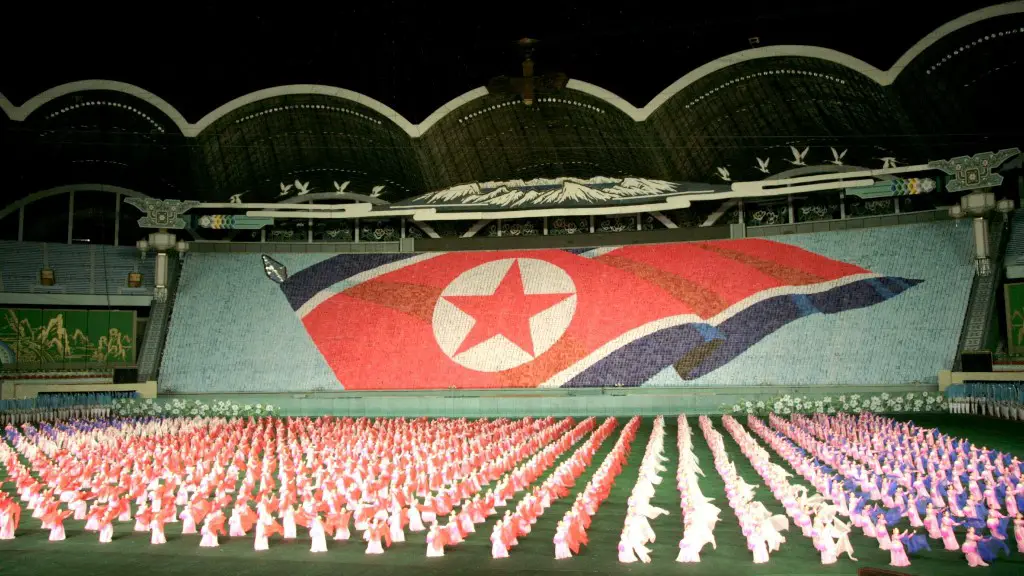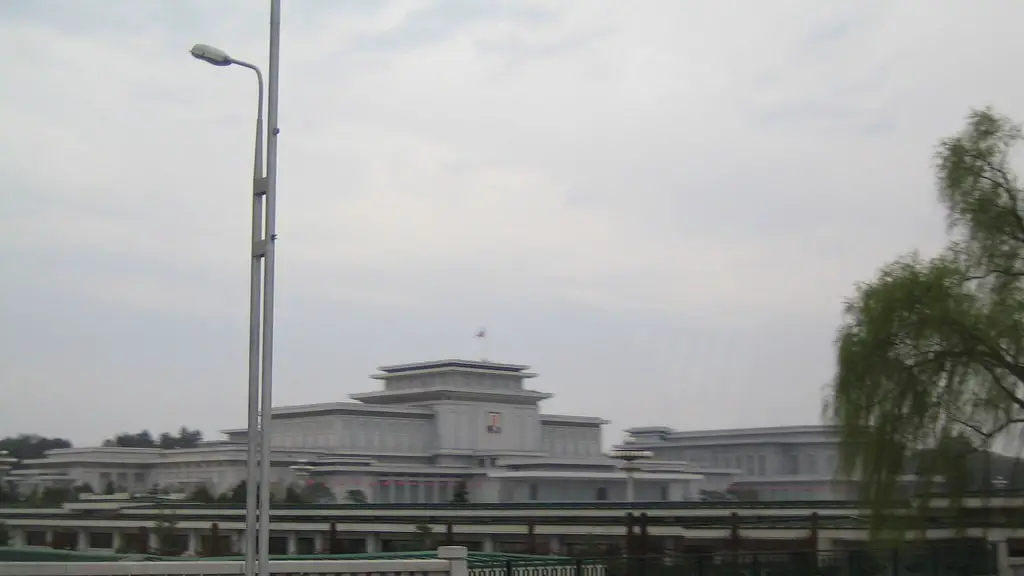The North Korea Situation
With the rapid modernization of North Korean missile testing and heightened tensions with the United States, many are wondering is war with North Korea imminent? The answer, unfortunately, isn’t straightforward. There are several factors to consider when exploring the possibility of a war with North Korea, some of which are more controversial than others.
To better understand the potential for war between the two countries, let’s take a closer look at the situation at hand. In 2017, North Korea launched several ballistic missiles in an effort to establish itself as a regional power and to demonstrate defiance to the international community. Additionally, the country conducted its sixth nuclear test in early September of that year.
These actions stand in direct contrast to United Nations Security Council resolutions, which have demanded that North Korea halt such activities. As a result, many Western nations have warned of further economic sanctions or military retaliation as a means to deter Pyongyang from launching more missiles.
Sanctions and Provocations
In response to North Korea’s provocations, the UN Security Council has issued a series of increasingly stringent economic sanctions on the country, aimed to choke off funds used to develop weapons of mass destruction. But these sanctions have yet to achieve the desired effect, as North Korea appears determined to continue its increasingly ambitious missile tests.
The US has further escalated tensions by deploying military assets to the region in response to North Korea’s violation of UN resolutions. US President Donald Trump has made it clear that the US will not tolerate North Korea’s nuclear missile program and has even threatened to destroy the rogue nation.
Meanwhile, North Korea has made it clear that it will not back down from its nuclear policies and will take whatever action necessary to defend its sovereignty and the integrity of its people. This stand-off has created a dangerously tense situation that could easily spark a conflict between the two countries.
The Possibility of War
The possibility of a war with North Korea is a real and present danger. The Trump administration has consistently been skeptical of diplomacy with the regime and is not ruling out the possibility of military action. The US has already imposed crippling economic sanctions on North Korea, and has hinted that it may be willing to use force if the sanctions fail to bring the regime to heel.
At the same time, the US has reached out to China and other regional powers to help convince Pyongyang to abandon its nuclear ambitions. It’s unclear whether these diplomatic efforts will be successful, but they could open the door to a potential negotiated solution.
In addition, the US has also taken some steps to reassure South Korea and its other allies in the region. This includes both military exercises and economic support, as well as military exercises that simulate responses to a North Korean attack.
These steps indicate that the US is serious about deterring North Korea, but all signs point to the possibility of war still looming.
The Risk of War
The risk of a war with North Korea is a very real one. While the US may not be looking for a fight, if diplomatic efforts fail, the possibility of a pre-emptive military strike against North Korea cannot be discounted. An attack against North Korea could lead to disastrous consequences both for the region and the world as a whole.
In addition, North Korea’s leader, Kim Jong-un, is said to have increased the pressure on US and UN forces by launching a nuclear-capable missile late last year, drawing condemnation from the international community. This could be seen as an act of aggression and an act of war by North Korea, and could potentially lead to further escalation, and ultimately, to full scale war.
The Effects of War
If there were to be a war between the United States and North Korea, the effects on both countries would be catastrophic.The US and its allies would suffer devastating economic and political repercussions, including an increased risk of a global economic crisis and the potential for nuclear fallout.
Similarly, North Korea with its limited resources would also find itself unable to cope with the effects of war, leading to untold suffering and potentially the displacement of millions of its citizens.
Possible Solutions To Avoid War
In light of the potential consequences of war, countries around the world, including the US and its allies, must be vigilant in pressing for diplomatic solutions. This means pushing North Korea to comply with international standards and work towards meaningful dialogue with the US and the international community.
Pressuring North Korea to abandon its nuclear programs without confrontation is a difficult task and one that will require further economic sanctions as well as additional diplomatic efforts from the international community.
The Trump administration has already experimented with various measures to rein in North Korea’s nuclear ambitions, such as increased economic sanctions, increased diplomatic pressure, and military drills. But these measures have yet to create a breakthrough and it remains to be seen if they are enough to avoid a war.
Popular Opinion & Public Perception
The majority of the international community have spoken out against the possibility of a war with North Korea. Countries from around the world have voiced their concern about the situation and have urged both sides to use diplomacy to resolve their differences.
However, there is a sense of fear among the people that the situation may spiral downwards and lead to an unthinkable conflict. This feeling of impending doom has led to a flurry of articles, books and television programs speculating on the potential of a war between the two countries.
The public perception of the North Korea situation is one of fear and uncertainty. Despite this, the message from the international community continues to be one of diplomacy and talks in order to avert any potentially devastating war.
International Response
The international response to North Korea has been mixed. While some countries have stepped up to participate in finding a solution to this crisis, a few states have continued to toe the line and are suspected of providing material, financial or technological support to Pyongyang in order to avoid any further conflict.
China has also approached the situation in a cautious manner. Chinese President Xi Jinping has personally sought to maintain a low-profile in international news but has been pushing for a “peaceful” diplomatic solution to the crisis.
At the same time, the United Nations has maintained a consistent call for diplomatic solutions and negotiations in effort to avoid war and for North Korea to comply with existing United Nations resolutions.
Role of U.S
The US has been a key player in the North Korea crisis and is one of the few countries with the military might to do something about it. And while President Trump has been relatively silent in terms of diplomacy, the US still has the ability to exert diplomatic and economic pressure on North Korea and its allies.
In addition, the US has acted as a mediator between North Korea and South Korea in the past, and could continue to use their diplomatic weight to push the two countries towards diplomacy.
Finally, the US has also sought to reassure its allies in the region, by engaging in military drills, such as sending a carrier group to the region, which sends a clear message of deterrence to Pyongyang.
Political & Economic Instability
With the continued danger that war with North Korea could occur, the possibility of political and economic instability in the region has increased. Many countries have already become wary of North Korean ambitions and are wary of their relationship with Pyongyang.
The US and other Western nations have already imposed heavy economic sanctions on North Korea, but there have yet to be tangible results as Pyongyang appears determined to continue its nuclear missile programs. There is also the fear that further economic sanctions may lead to political turmoil in North Korea, threatening the safety of US allies in the region.
At the same time, fears of an impending war with North Korea have caused stocks to fall and affected currency values due to the economic uncertainty such a conflict would bring.
The Endgame
No one can be certain as to what the endgame in the standoff between the US and North Korea will be. The effects of a potential war have already been felt and the possibility of such an event looms larger by the day.
However, both sides are well aware of the potential repercussions of a conflict, and it is likely that diplomatic attempts to resolve their differences will continue in order to avoid a war.
In the meantime, the international community will remain vigilant, watching and waiting to see how the US and North Korea manage the situation and whether they are able to find a way to de-escalate tensions.


